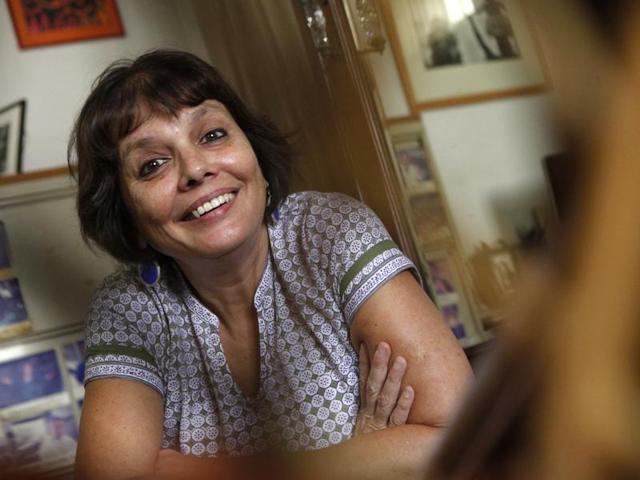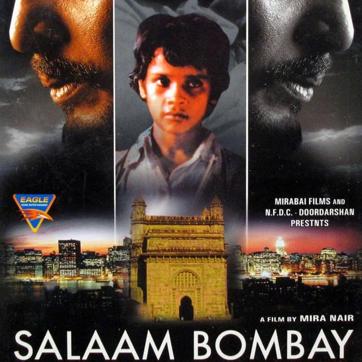‘Life’s all about taking risks’ : Filmmaker-author Sooni Taraporevala
With a film and a new edition of her cult book set to release next year, Sooni Taraporevala says she has no plans of slowing down
We are at Sooni Taraporevala’s beautifully furnished Grant Road residence. Her living room is bathed in mellow sunlight streaming in from the balcony. Strewn around are clues to Taraporevala’s passions: still-life photographs adorn the walls along with family photos, a story board from her directorial debut — Little Zizou (2008) — is attached to a metal cupboard, and resting on a wooden desk are her books and screenplays, written for films like Salaam Bombay (1988) and The Namesake (2006). Clad in a white and grey kurta, Taraporevala steps in with a warm smile.

For someone as prolific as her, she terms most of her career choices as unplanned, akin to “leaping into the unknown”. She will now share her serendipitous journey at Mumbai Local on October 16, one of the rare occasions when she speaks to an audience. Don’t expect any advice, though. “I hesitate to give tips because I don’t want to lead anyone down the wrong path,” she says.
However, what she does plan to talk about, is stepping out of the comfort zone — something she is familiar with, having turned director at the age of 50. “It’s about taking risks and not getting complacent with what you are good at. I was nervous every time I chose a new path but my motto in life is to wing it,” says the 57-year-old.
Now and then
Taraporevala’s journey as a photographer started at Harvard University (USA), where she went to study economics in 1979. Along with her luggage and memories of leaving home for the first time, she had also packed an Instamatic camera, gifted to her by her aunt and uncle. “I took pictures of autumn leaves and my first winter. Then I felt the need for a more sophisticated camera. So, I borrowed money from my roommate and bought my first camera — a Nikkormat,” she says. In 1981, after completing an MA in cinema studies from New York University, she realised her calling was not to teach or be a film critic. “So, almost by default, I became a photographer,” she explains.
In the pre-digital era, photography was an expensive pursuit and also didn’t pay very well, Taraporevala reflects. Having shot both in the analog and the digital format, she has observed the transition from close quarters: “Photography has gone through a sea of change with digital photography and camera phones. But I don’t miss film. Shooting with digital is more liberating. You don’t need to carry film, and there’s more flexibility and ease of sharing.”

Closer home
Taraporevala has not had to look far for inspiration. Her works often delve on people and communities that she is familiar with. That’s how, in 1988, she turned screenwriter with Salaam Bombay which was inspired by a gang of street kids who lived at Grant Road station, down the street from her house. Unexpectedly for Taraporevala, Salaam Bombay turned out to be a success and a turning point. “I found I had another career. I was happy because I no longer had to depend on photography to make a living,” she says. She would go on to write screenplays for many other films including Mississippi Masala (1991), Such a Long Journey (1998) and Dr Babasaheb Ambedkar (2000).
Her film Little Zizou also draws from the idiosyncrasies of the Parsi community, to which she belongs. Initially a screenwriter for the film, her familiarity to the topic led her to direct the film as well. “I was concerned by the rise of fundamentalism and leaders who wear their religion on their sleeves. I wanted to write about that, but with humour,” she says.
The community also inspired her first book, Parsis: The Zorastrians of India (2000), which documented the day-to-day life of its people. Her second book Parsi Bol (2014), in collaboration with writer Meher Marfatia, featured delightful phrases crowd sourced from the community.
Despite having such an extensive body of work to her credit, being bestowed with the Padma Shri last year was a surprise for her. “I thought it was a prank. It was lovely but nothing’s changed. I was told that if I go to jail, I’d get a better cell,” she guffaws.
Not one to rest on her laurels, this August saw her showcase her latest photographs at Conversations in Colour, an exhibition held at Jhaveri Contemporary, Walkeshwar. Things came full circle when her work featured alongside that of her mentor Raghubir Singh.
Taraporevala is now busy with her next directorial venture, 3 ½, which she hopes to start shooting for next year. She is also working on an expanded edition of Parsi Bol that will be out next year.
Don’t miss
What: Exiting the comfort zone by Sooni Taraporevala will take place on October 16, 5.30pm onward
Where: Kitab Khana, Fort
Call: 98333 44173
Email: mumbailocal@junoontheatre.org
Catch your daily dose of Fashion, Health, Festivals, Travel, Relationship, Recipe and all the other Latest Lifestyle News on Hindustan Times Website and APPs.




